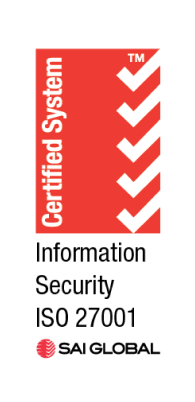Cloud computing has existed for decades and is still widely misunderstood, highly intricate, and undeniably trend-worthy. One day, we’re rushing to the public cloud due to the “cloud-first” hype. Now, we’re racing back to on-premise infrastructure in response to the “cloud-repatriation” movement.
While the right cloud strategy can feel impossible to nail down, a hosted private cloud (HPC) is an important part of this conversation. In this article, I’ll explain its role and some steps companies can take to be successful when adopting it.
What is a hosted private cloud?
A hosted private cloud is a fully managed cloud environment intended to offer the ease and scalability of the cloud and the control and security of dedicated infrastructure.
Instead of sharing resources among multiple users like in the public cloud, this offers a dedicated environment for organizations to enhance performance, privacy and security. In the face of today’s technology-driven landscape and the burgeoning AI era, strategic cloud decisions are crucial for driving business growth.
With a public cloud, there’s a certain level of ambiguity about where your data is located, opening the door to increasing security, compliance and data sovereignty issues. Hosted private cloud offers a secure alternative in the face of these concerns. As you have the conversation about transitioning to a hosted private cloud, consider these potential advantages:
• Hosted private cloud solutions provide dedicated resources and security measures to protect sensitive information.
• Hosted private cloud offers organizations greater control and customization options compared to public cloud solutions alone, allowing businesses to tailor their infrastructure to specific requirements.
• Hosted private cloud can deliver consistent and high-performance infrastructure due to dedicated resources and robust service-level agreements, which is especially important for applications and enterprises that demand stable performance and zero downtime.
• Many legacy applications are not easily migrated to public cloud environments. Hosted private cloud can allow organizations to continue using their legacy applications on a more adaptable and scalable infrastructure.
• Hosted private cloud might have higher initial costs compared to public cloud, but it can lead to cost savings in the long run for certain workloads, allowing businesses to consolidate their infrastructure, enhance resource utilization and avoid unforeseen cloud service charges.
• Organizations might not have the expertise or resources to handle their private cloud infrastructure, but hosted private cloud providers offer managed services and support.
How can businesses make the transition to a hosted private cloud?
Cloud migration can puzzle leaders, but a well-designed and well-executed strategy can mitigate risk and open opportunities. Leaders should ask themselves the following questions to ensure they’re building an effective and clear cloud migration strategy:
1. What applications do you have? Organizations must first audit the existing IT environment, listing all applications and determining exactly what should be put into the third-party environment. During this discovery process, organizations should conduct a risk assessment, inventory IT assets, map dependencies, record current usage and understand security requirements to build an awareness of what is involved in cloud migration.
2. What applications are you going to move? It’s essential to understand what is going to be compatible from a hypervisor perspective, acknowledging if containerization is needed to move data or if applications must be rewritten. Only some workloads are suited for the cloud, and businesses that blindly move their workloads to this environment may be face-to-face with costly repatriation.
3. Who is going to interact with the data? There must be a structured access list, giving the right people in the organization the right access to the cloud environment. Companies that overlook this step give away access to sensitive data too freely, opening the doors to unwanted risk. Before moving forward with cloud migration, organizations must understand the business value they expect to achieve and what direct stakeholders will help them achieve it.
4. Is your security posture up to par? Cloud migrations come with a long list of security policies to follow, and organizations must have a solid grip on the plethora of security and regulatory requirements. By overlooking this step, organizations may be hit with hefty fines or, even worse, find their sensitive data compromised. To lessen the risk of hackers accessing private information during the move, it’s essential to properly configure identity and access management controls as well as to encrypt critical data and applications.
Conclusion
The pace of digital transformation shows no signs of waning, and companies must perpetually evaluate their data management tactics. As you strategize for 2025, bring insights about current cloud dynamics and also sketch out a blueprint for the future. Hosted private cloud is an important part of the cloud conversation, as it brings unique use cases and benefits that could be the right move for your specific needs.





